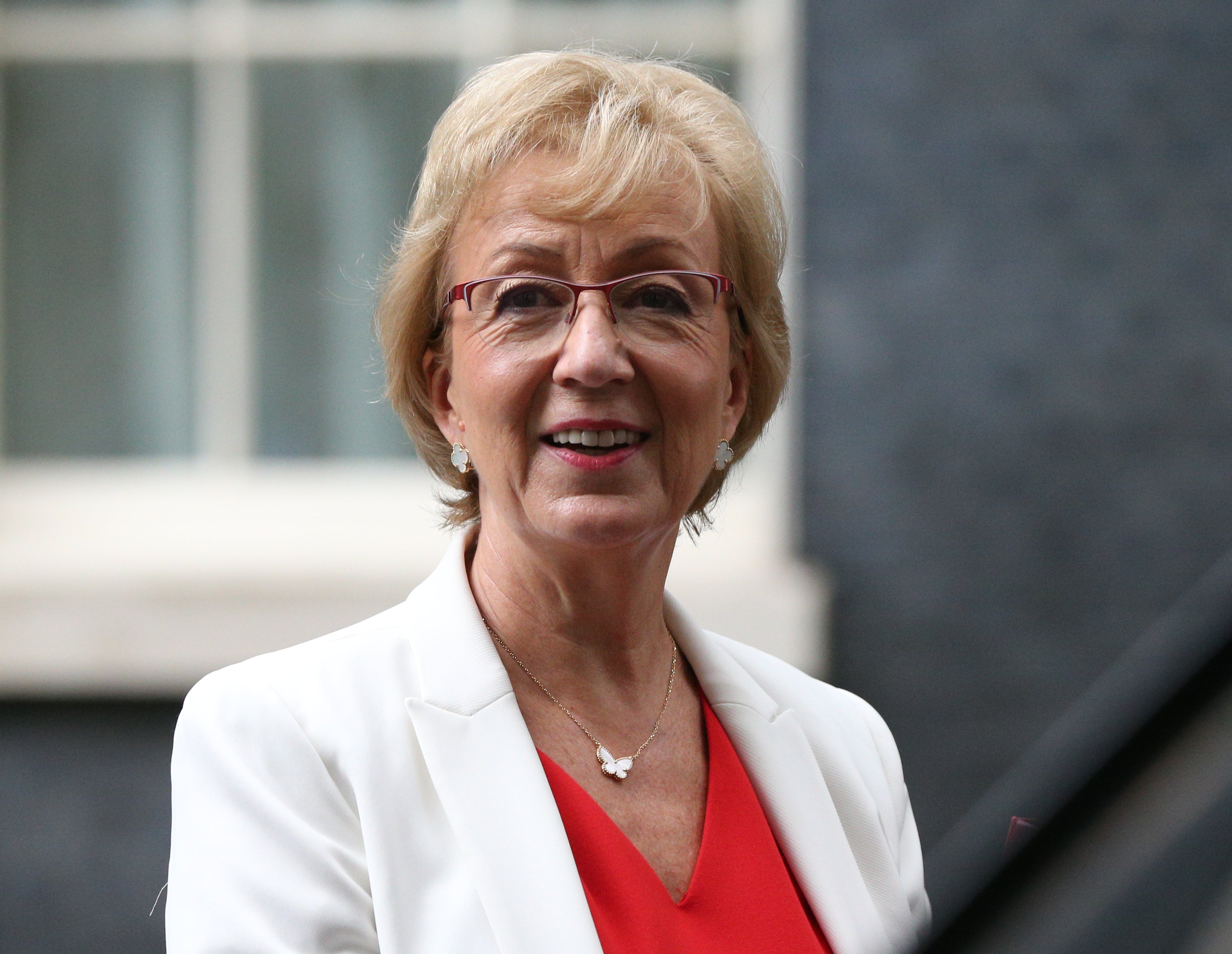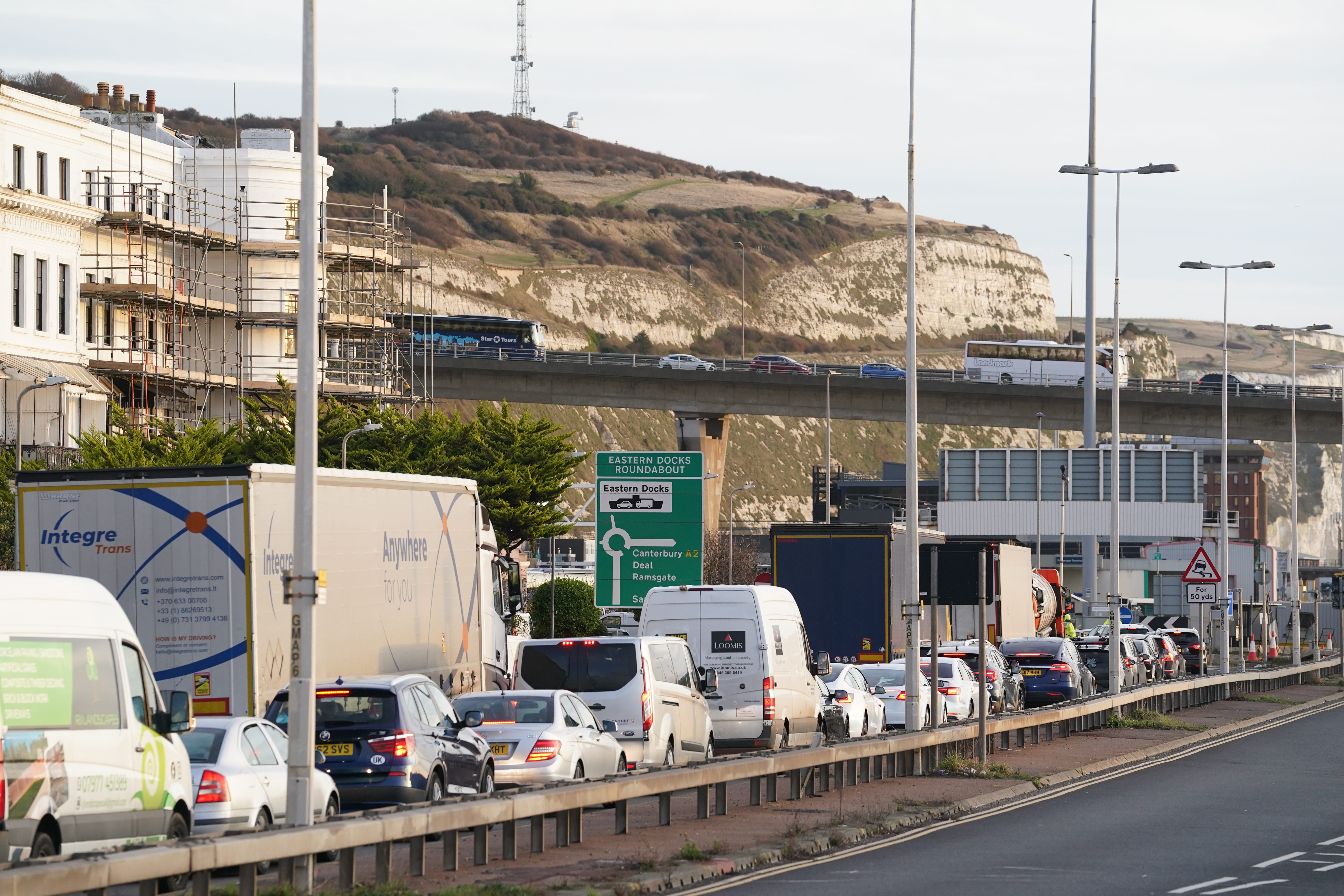Tory Brexiteer dismisses cost of new food checks as ‘price you pay’ for Brexit
Expense of fresh red tape on EU imports is simply ‘cost of doing business’, says Tory minister Andrea Leadsom
Conservative minister Andrea Leadsom has dismissed the concerns of business chiefs over the costly new checks imposed on imports from the EU as the “price you pay” for Brexit.
The leading Brexiteer defended the “friction” in the new system for physical checks at the border – describing it as “the costs of doing business”.
Ms Leadsom said British firms must “adapt” and could even consider “changing their trading arrangements with the EU” if they wanted to bring down their costs.
Rishi Sunak’s health minister, a senior figure in the Leave campaign, telling Sky News: “Leaving the single market was always going to have implications.”
“I’ve had many constituency cases over the years of people who have changed their trading arrangements with the European Union as a result of different frictions, whether it’s postal cost changing, whether it’s border control,” said Ms Leadsom.
Asked if she was suggesting that UK businesses stop buying from Europe, she said: “No, I’m not saying that. I’m just saying that businesses need to adapt to meet the changing environment. There are huge opportunities from the rest of the world.”

The former business secretary added: “Obviously, what some businesses will do is continue to trade with the EU and absorb those costs, and others will choose to find access from elsewhere.”
Her comments come after business chiefs warned the new checks could significantly reduce the shelf life of fresh food imported from the EU, and could see some European suppliers quit the UK.
And business groups say some suppliers of specialist products – like French cheeses and Italian meats – will give up on Britain because of the extra expense and “huge hassle” involved.
Ms Leadsom also told Times Radio that it was long known that “friction” would occur as a result of Brexit.
“It was very clear in the Brexit discussions a long time ago now, today is the fourth anniversary of leaving the EU, it was very clear that we would be leaving the single market,” said the Leave-supporting minister.
“What that does mean is that there is some friction in trade,” she added. “However, we also have huge trading arrangements with other countries around the world.”
She said: “So there is a huge new opportunity for the UK at the same time as continuing to trade, albeit with some friction, which is the price you pay for leaving the single market and for being a sovereign state again.”
Ms Leadsom added: “For me as a Brexiteer, I am still absolutely convinced that this is the right thing to do.”

Costly new health certificates are required for medium-risk food, animal and plant imports – including meat and dairy – from today, 31 January. A brand-new system for physical checks at the border comes into force on 30 April.
EU firms will now need to pay for veterinary health certification – a new check within their own country – as well as fill out online paperwork to notify the UK the goods are coming.
One of Sir Keir Starmer’s shadow ministers has suggested that a Labour government would look again at the trading relationship with the EU if businesses are “struggling” with the new checks.
Tulip Siddiq, a shadow Treasury minister, told Sky News: “If there are things that aren’t working, then of course we need to review it and look at it.”
The Labour frontbencher added: “We would look at look at where businesses are struggling, where the economy is struggling, and go and see if we can get a better deal for our country. They (voters) may have voted to leave the European Union, but they didn’t vote to get a bad deal.”
On going back to the EU to discuss trading arrangements, Ms Siddiq added: “If we can work to get some sort of negotiation which is good for our country, I don’t think any British person is going to say no to our economy improving or our trade deals getting better.”
Sir Keir has promised to seek a new veterinary agreement with the EU to align some stands in a bid to ease current trade friction.
The Labour leader has also made vague pledges to examine the current Brexit trade deal when it comes up for review in 2025 with a view to making it “better”.
Join our commenting forum
Join thought-provoking conversations, follow other Independent readers and see their replies
Comments
Bookmark popover
Removed from bookmarks